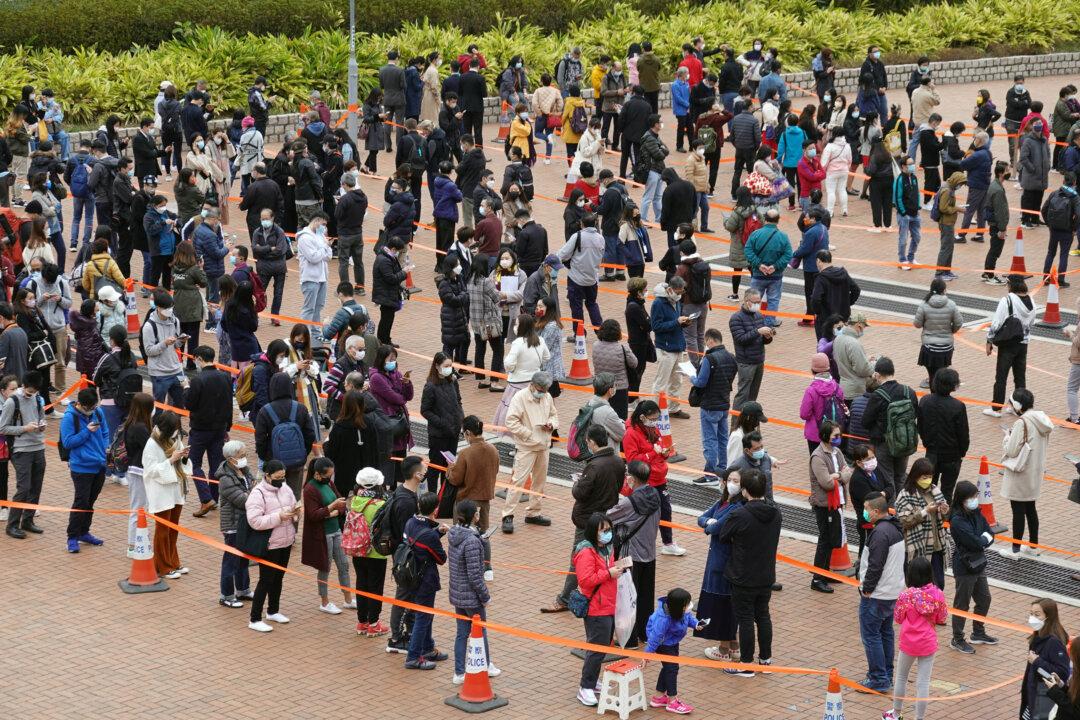Hong Kong reported 986 new coronavirus infections on Thursday as authorities scramble to contain an outbreak which medical experts warn could see 28,000 daily cases by the end of March.
The rise in cases, up 10-fold since Feb. 1, is proving to be the biggest test for the global financial hub’s “dynamic zero” policy of virus suppression.





